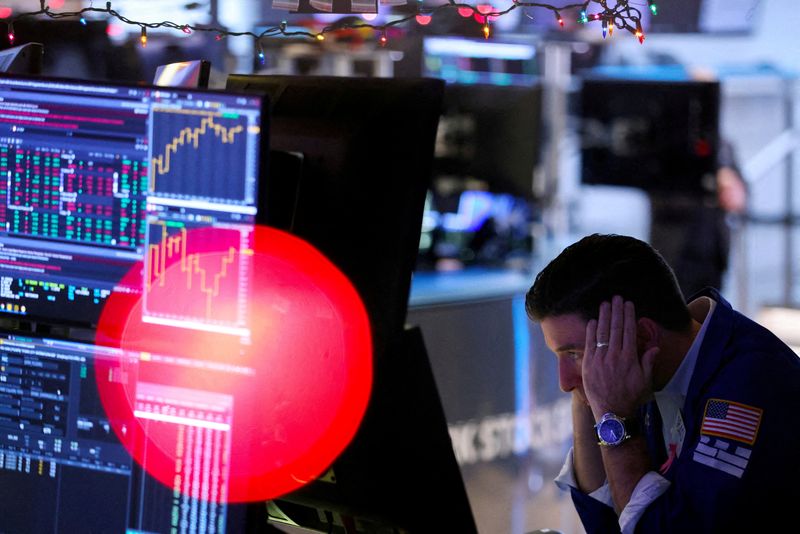U.S. technology stocks could come under significant pressure as investors continue to de-risk their portfolios ahead of new economic data, Citi strategists said in a Tuesday note.
According to the Wall Street firm, investors reduced risk across most markets over the past four sessions.
In the U.S., indexes began to rise again as investors unwound short positions. Still, despite prices stabilizing, the trend of de-risking persisted.
The upcoming week will bring several key updates on U.S. inflation and growth, with the Consumer Price Index (CPI) scheduled for release on Wednesday, followed by retail sales, industrial production, and jobless claims data on Thursday.
In the S&P 500, recent unwinds have brought net notional positioning close to neutral. However, net positioning in the NASDAQ Composite remains extended at +3.2 normalized.
"This has driven the negative mark to market to unprecedented levels and on any negative economic data there will be significant pressure on these long positions, (average loss of 7.6%) to unwind,” strategists wrote.
"That in turn could amplify any down moves from here in the near term,” they added.
Specifically, the Nasdaq faces $22.5 billion in long positions that are at risk of potential unwinding, with average positioning remaining in loss below 20,050, Citi highlights.
Exchange-traded fund (ETF) flows have already turned negative for the Nasdaq index, although they remain flat for the S&P 500.
Elsewhere, the European market is also experiencing degrossing ahead of the upcoming U.S. inflation report, leading to an extended net short position in the STOXX 600. However, Citi strategists note that these shorts are only moderately extended, with less pressure on profits, making positioning less critical than in the Nasdaq.
In China, bearish positioning is intensifying in the FTSE China A50 index due to long unwinds and new shorts, while the Hang Seng has turned more neutral. Despite significant short positioning in the A50, average profits remain low, reducing the immediate risk of profit-taking.
Japanese equities have been impacted by the unwinding of the Yen carry trade, but net positioning in the Nikkei 225 (NKY) remains slightly long, with relatively low short positions. Although the NKY has seen some selling, most of the de-risking appears to have occurred earlier, with gross exposure halving since January, Citi highlights.
